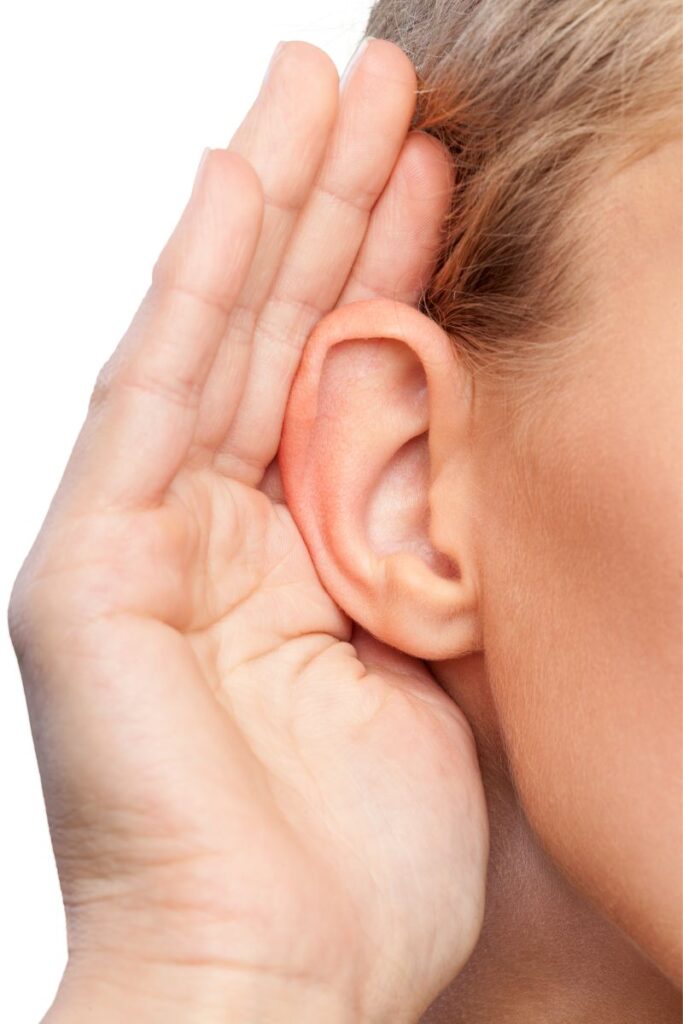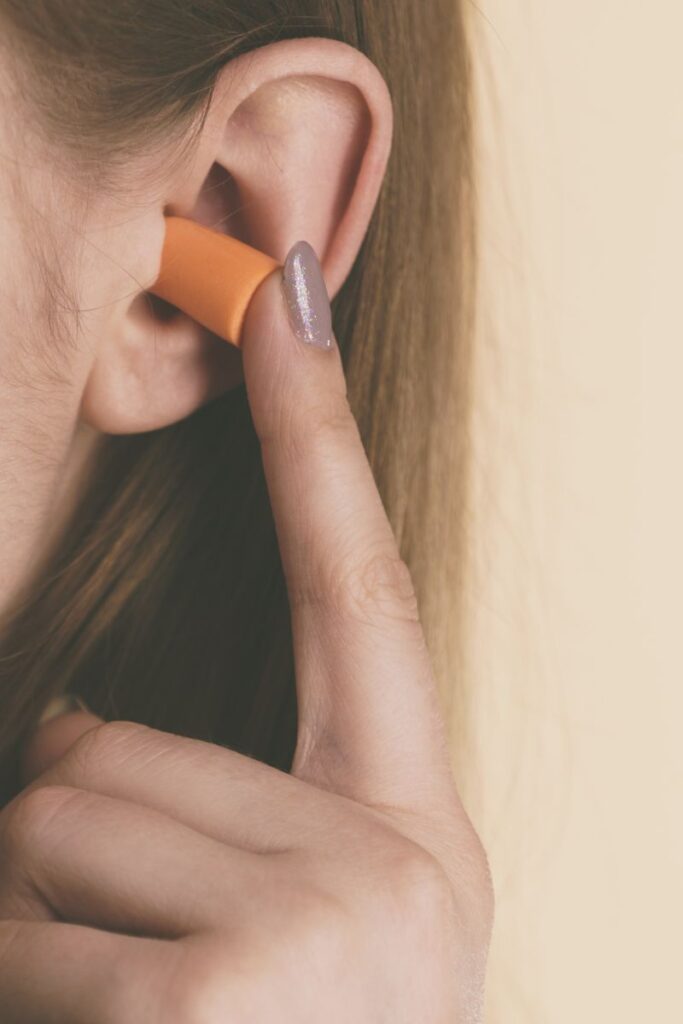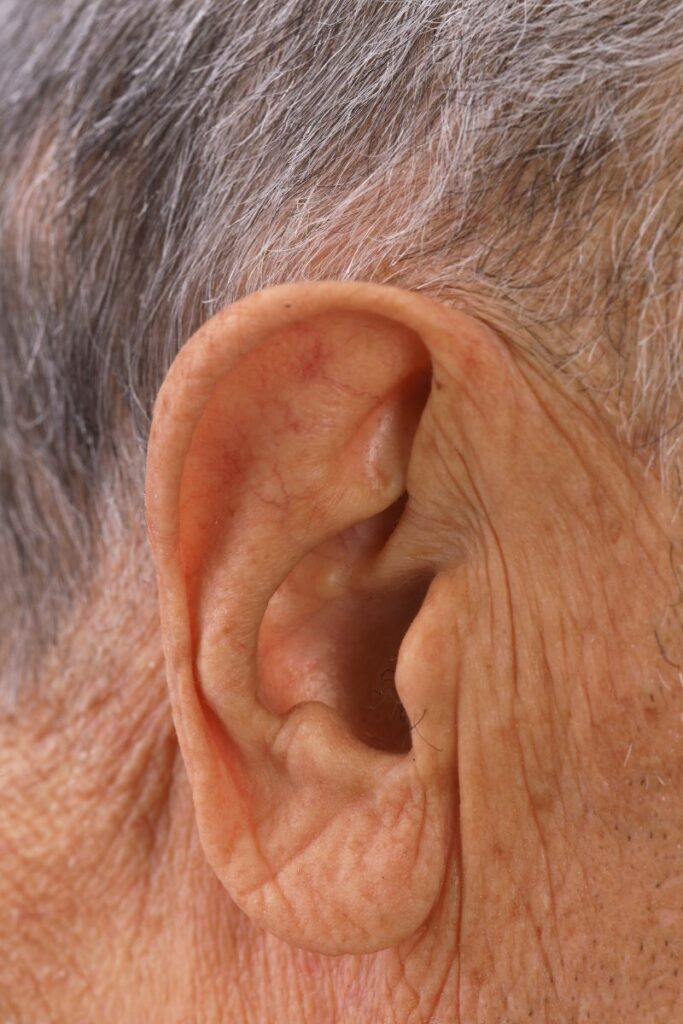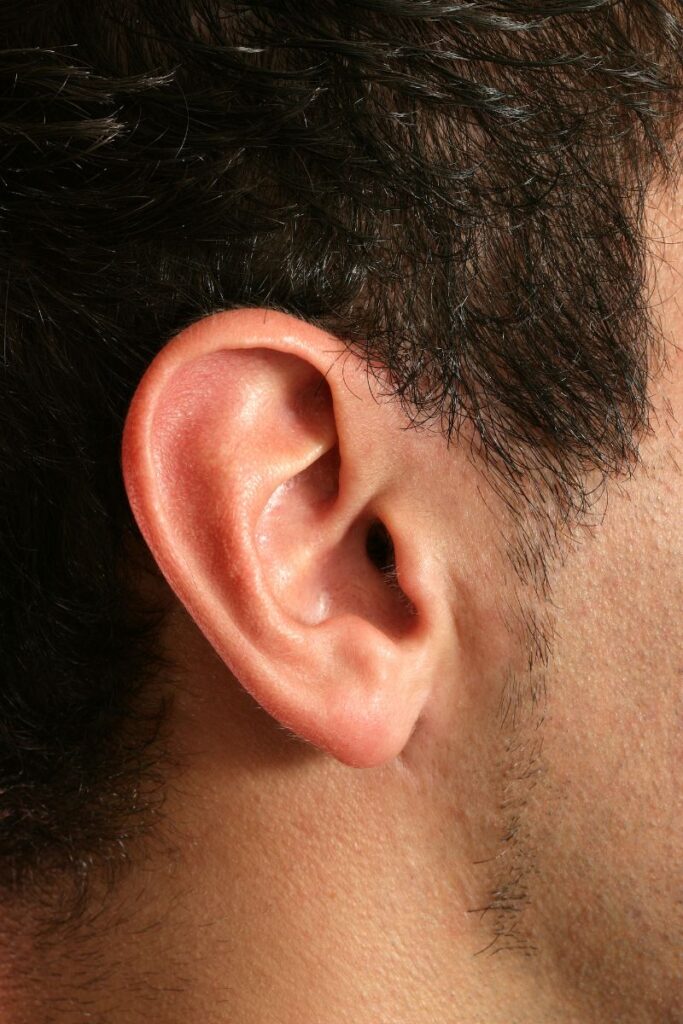Looking for some fun facts about ears? From yukky ear wax to why they won’t stop growing, check out these amazing ear facts now!

People say if your ears are burning, someone is talking about you. But what if they’re ringing?
Ears are surprisingly interesting. We don’t think much about them on a daily basis, but if they get an infection or water in them, life becomes very difficult and painful all of a sudden.
But did you know that ears are self-cleaning? Or that they send electric impulses to your brain? These are just some of the fun facts about ears you’ll learn about in this article!

Ears are not just responsible for converting sound for the brain. Ears also play an integral role in how well we balance.
You might have heard the smallest bone in your body is in your ear. But did you know that it’s actually the smallest THREE bones in your body are in the ear? And also, that the hardest bone in your body is right there with them?
Ears help us enjoy life more immensely. Imagine if you never heard of Beethoven. Or waves crashing on a beach. Or a thunderstorm. Sounds are everywhere. And without ears, we wouldn’t be able to hear any of it.
So put your listening ears on and get ready for some amazing ear facts. If nothing else, you’ll appreciate your ears a bit more!

Contents:
20 Fun Facts About Ears
1. Ears clean themselves
Ears are actually self-cleaning! This means you don’t have to clean them yourself. Tell that to the Q-tip industry… However, an excessive build-up of ear wax could become an issue. If this happens, see a professional to get your ears cleaned.
2. They are sensitive
There’s a reason your first instinct is to cover your ears when there is a really loud noise. Sounds above 85 decibels can damage your hearing. In fact, it only takes one single exposure to noise at this level to potentially damage your hearing forever.

3. Ears are electrical
Well, maybe they aren’t electrical, but they do send electric impulses. Whenever sound reaches the ear, it is converted into electric impulses by the cochlea and the organ of Corti. These impulses are then sent to the brain.
So, your brain never gets the actual sound. It’s a little like morse code. These is definitely one of the more fun facts about hearing we have for you.
4. Ear wax is important
Ears are highly sensitive, and particles like dust and dirt getting inside can cause serious issues. So, your ears produce wax to protect themselves from outside particles.
Clear or yellow-colored wax is completely normal. But, if it’s green, red, or black, there could be other issues going on.
5. Earwax can tell us a lot
What kind of wax you have in your ear is determined by your genes, one single letter on one particular gene even. On the gene ABCC11, an A means you have dry ear wax while a G means you have the wet variety. In case you were wondering, the wet gene is dominant.
This phenomenon is so predictable that anthropologists use ear wax to study how ancient humans migrated.
People of Caucasian or African descent are more likely to show the G, or wet, ear wax gene while those from East Asia more often have dry ear wax. Other cultures, like Pacific Islanders and Native Americans, show a more balanced display.

6. Popping your ears is a real thing
Whenever your fly on a plane, or get on an elevator in a really tall building, your ears will inevitably pop. This sensation is because of the Eustachian tube. This narrow tube is just over an inch long and connects to the back of your nose.
The responsibility of this tube is to balance the pressure in the middle ear. When something disrupts the balance, your feel the popping sensation as the pressure rebalances.
7. Parts of it are super small
Now, for the smallest ear facts. The ear is home to the tiniest bones in your body. The stapes, also called the stirrup, anvil, or hammer, along with the incus and the malleus, are in the middle ear. If you were to put all of these bones together, they wouldn’t even be the size of a penny!
8. Parts of it are super hard
Ok, the hard part isn’t technically the ear. But it is the area where the ear attaches to your head. The temporal bones are two major bones in the skull, and they just happen to be the hardest bones in the body.

9. It won’t stop growing
Have you ever noticed that older people seem to have really big ears? Older generations weren’t born with bigger ears. The outer ear never stops growing. This unfortunate fact about ears is something to look forward to, huh?
10. They never turn off
It might seem like your ears somehow turn off or stop working when you’re asleep. After all, how could you sleep if you were constantly hearing things? However, your brain learns to ignore sounds while you are sleeping.
11. There are universally unpleasant sounds
Many studies have looked into what sounds humans enjoy verses what they despise. Amazingly, even though these studies were done at different times in different places, the results were fairly similar.
The most annoying sound is a knife scraping against a bottle. Other top finishers were a fork scratching against a plate and chalk on a chalkboard. One of the most pleasant sounds is bubbling water.

12. Hair makes you hear
Tiny hairs called vellus hairs line the inside of your ear. These fine strands are responsible for your hearing. They live in the canals deep in your ear that are filled with fluid. As you move, the fluid moves as well.
If it weren’t for the combination of this fluid and hair, you couldn’t hear. And you likely couldn’t walk since they are also responsible for your balance.
13. You can help your ears with good food
Foods high in Omega 3 fatty acids are particularly essential to healthy ears. These nutrients strengthen the blood vessels found in the inner ear.
And if you have a habit of listening to loud music, load up on leafy vegetables and other foods high in antioxidants. Studies have shown these foods can help with hearing issues associated with exposure to loud noise.
You can check out these fun facts about the mouth when you’re enjoying those healthy snacks!
14. Ears are super unique
Similar to a fingerprint, no two ears are alike! Companies like Yahoo have even experimented with the idea of using ears to unlock phones rather than fingerprints or Face IDs.

15. Background noise can be difficult to contend with
Do you find yourself constantly adjusting the volume of the radio or television? It seems like every time you slow down, you need to turn the volume down. There is a reason for this.
To decipher sound, people with normal hearing need sound to be around 10 decibels louder than background noise. This is known as signal-to-noise ratio.
16. Sound is fast
Sound waves are super fast. Your ear has to process these waves while they are coming at a rate of 760 miles per hour. That evens out to 1,130 feet per second!
17. Say it to my good ear…
Many people swear they can hear better from one ear. And there may be some truth to that ear fact.
According to the University of Arizona, each ear has different preferences. As young as infancy, people tend to hear speaking better in the right ear and music and continuous tones better from the left ear.

18. The canal is always changing
Your ear canal today is not the same as when you were born. Heck, it’s not even the same as last year! The skin in this area grows fairly rapidly at a rate of 1.3 inches per year.
As it grows, the ear pushes old skin out. So, every year or so you have a new ear canal.
19. The decibel has a famous namesake
And now for a historical facts about ears. The decibel is the measurement of sound. But it’s also a relatively recent idea.
This measurement was named after none other than Alexander Graham Bell, the inventor of the telephone. Pretty fitting.
20. We see faster than we hear
Think back to the last time you saw lightning and heard thunder. It always happens in that order, right? Lightning, pause, thunder. This is because light travels much faster than sound. Light moves about 186,000 mph while sound only goes 760 mph.
Next time you see lightning, count the seconds before you hear the thunder. Every five seconds equals about a mile in distance.
Who wants more fun facts?

If you’re looking for some recommendations, these are a few of our favorite fact books to buy. We use these when planning fun trivia nights with family and friends!
So, of all these ear facts, which was the most fascinating? There are facts about ears everywhere, you just need to know where to listen, I mean, look.



